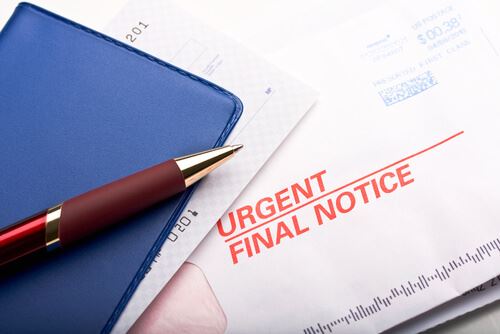 The Ninth Circuit Court of Appeals reversed a district court’s summary
judgment in favor of a defendant regarding the
Fair Debt Collection Practices Act (FDCPA), which requires that a debt collector must send a consumer notice
about specific disclosures within 5 days of communication about the debt
collection. According to the panel, which reviewed the
Hernandez v. Williams, Zinman & Parham, P.C. case, this requirement does not only apply to the initial communication,
but to other collectors communicating about the same debt.
The Ninth Circuit Court of Appeals reversed a district court’s summary
judgment in favor of a defendant regarding the
Fair Debt Collection Practices Act (FDCPA), which requires that a debt collector must send a consumer notice
about specific disclosures within 5 days of communication about the debt
collection. According to the panel, which reviewed the
Hernandez v. Williams, Zinman & Parham, P.C. case, this requirement does not only apply to the initial communication,
but to other collectors communicating about the same debt.
Maria Hernandez took out a loan, which she used to finance an automobile purchase, but when she stopped making payments on it, Thunderbird Collection Specialists, Inc., a debt collector, sent Hernandez a letter to collect on the debt, but did not receive a response. After the unsuccessful attempt to communicate with Hernandez, Thunderbird sought the assistance of the law firm Williams, Zinman & Parham PC (WZP), which sent Hernandez a collection letter. Hernandez followed up with a lawsuit, which alleged that WZP violated FDCPA when they sent the collection letter that did not contain the required disclosures.
The dispute here was whether or not Thunderbird’s letter to Hernandez qualified as the only “initial communication” that needed to disclose the required information. The Ninth Circuit Appellate panel ruled that subsequent letters from other parties must also provide specific disclosures in their initial contact letter. This is a practice that most conservative companies already follow, making the court’s opinion more of an expectation rather than a surprise. Additionally, the hiring of law firms to assist in debt collection has decreased.
At Atlas Consumer Law, we have a team of skilled creditor harassment lawyers, well versed in matters such as the Fair Credit Reporting Act, Fair Debt Collection Practices Act (FDCPA), Real Estate Settlement Procedures Act, Illinois Consumer Fraud Act, and the Telephone Consumer Protection Act. Call us today at 312-313-1613 for an attorney prepared to uphold your rights.

